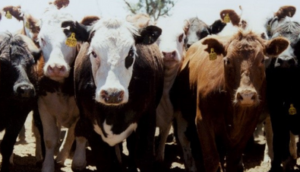Read the latest information on
Foot-and-mouth disease
As an island nation, Australia is already at an advantage in protecting our livestock from well-recognised but foreign pests and animal diseases. On top of that, we have a world class multi-faceted biosecurity system in place protecting our livestock from the inside-out. A vital part of this biosecurity system is the surveillance that we do looking for exotic diseases, should they breach our border.
It’s important to note that the key to keeping this surveillance running is you, our producers!
It’s you who helps maintain Australia’s freedom from such things as transmissible spongiform encephalopathies (TSEs), a rare class of neurological diseases. It’s a mouthful of words for various fatal diseases that have no validated live animal tests, no treatments, and no vaccines.
Characterised by spongy degeneration of the brain, TSEs in animals are associated with the accumulation of abnormal prion protein in the brain and therefore affect the central nervous system.
There are two main TSEs of interest to Australia’s livestock industries:
You may have heard of ‘Bucks for Brains’. This is part of the National TSE Surveillance Project (NTSESP), which delivers nationally integrated TSE risk minimisation measures to keep Australian animals and their products free from TSEs. Managed by Animal Health Australia, the project involves targeted surveillance for neurological disease in cattle, sheep and goats with investigations of cases involving unexplained neurological signs. This surveillance helps our reporting to the World Health Organisation for Animals, which in turn means we maintain our TSE-free status.
This is where you become the key to protecting our livestock from TSEs and maintaining our markets based on this free status. If you see animals in your herd or flock demonstrating neurological signs, you should call your vet to investigate them.
You may be wondering what’s in it for you? Other than helping keep Australia’s disease-free status of course! If the case is appropriate, you may be eligible for an incentive payment as well as subsidisation of the costs to diagnose what is actually affecting your animal(s). Samples (from the brain and other tissues) are submitted to laboratories around Australia for TSE exclusion testing, as well as the tests required to diagnose what is affecting the animal(s).
As we all know, prevention and early detection are key. You can help keep Australia free from TSEs by reporting these cases and having them investigated by a private or government vet.
As always, if you see unusual signs of disease in your livestock call your vet or the Emergency Animal Disease Hotline on 1800 675 888. We all have a role to play to keep our animals healthy and retain our TSE free status.
Learn more about how we are working together to maintain Australia’s freedom from TSES here: https://animalhealthaustralia.com.au/maintaining-australias-freedom-from-tses/ .